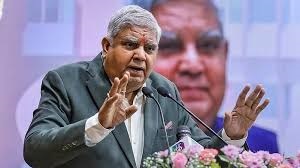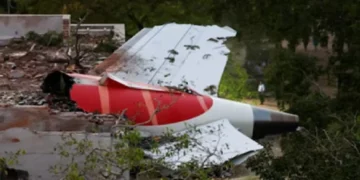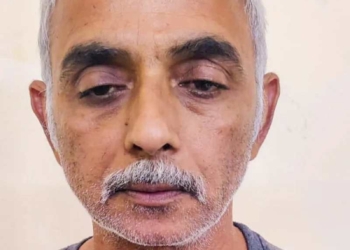Vice President Jagdeep Dhankhar on Sunday advocated direct profit transfer (DBT) based on US pattern in fertilizer subsidy for farmers and demanded that inflation should also be taken into consideration while providing financial assistance to farmers like salary of MLAs and MPs.
Addressing the faculty members and students of Rajmata Vijayaraje Scindia Agricultural University in Gwalior, the Vice President said, “The Prime Minister has taken into consideration inflation while amending the salary of MLAs and MPs, so why not support farmers? Inflation should also be taken into consideration in the aid given to farmers”.
Emphasizing the need for direct profit transfer (DBT) in fertilizer subsidy, Dhankhar said, “In the United States, all assistance provided to farmers is directly provided, not through middlemen. Just as we have a PM-farming scheme in India, similarly the Indian government also spends huge on fertilizer subsidy.
He said, “It is now a matter of both contemplation and research. If the same money is transferred directly to the farmers, every farmer family in India can get at least Rs 30,000 per year. This amount should be given directly to them.” He said that, at present, when the government provides fertilizer subsidy, farmers do not really feel its effect.
The Vice President said, “We should ensure direct transfer of subsidy to farmers,” he said that in the US, a farmer’s family income is more than a common family. He also underlined the importance of their participation in the price-promotion chain to improve the income and standard of living of farmers.
He said, “The life of a farmer can change only when he is rich. The Vice President said,” Children of agricultural families should enter new areas related to agriculture. Today, the biggest business in the country is agricultural trade. “He said,” Look at the huge scale of agricultural marketing. There are mandis and middlemen. Financially this is a very large figure. But is the farmer participant in it? No. The farmer has been made only productive. We have to change this mindset. It is not a sensible decision to sell and sell immediately. “
He said that subsidy for farmers should be linked to inflation. He said, “Farmers get indirect help, which we call subsidies. But the first thing is that any assistance given to farmers should be linked with inflation. The Vice President further said that the assistance of Rs 6,000 per year to farmers is still the same today.
He said, “Any economist will tell you that the purchase power of Rs 6,000 is not as much as it was to start.” The Vice President emphasized the important role of farmers in making India a developed nation. He said, “The path of developed India goes through our farmers’ agricultural territories. India has always been an agricultural-oriented nation and now we are standing on the verge of an agricultural revolution that will shape our future.”
Dhankhar emphasized the importance of farmers being sensitive to the plight and pain. He said, “We should work towards making our farmers only to make ‘agricultural entrepreneurs’ or agricultural entrepreneurs. He said,” When the farmers participate in the trade and sale of their produce, they will get a proper share of the profit. The second thing is that the foundation of agriculture-industrial sector is agricultural produce, but the farmer is far away from it. Why? Why should the farmer not promote price in his product? This is something that we should consider.
He said, “Today the government has adopted very positive policies, now the farmer should come forward.” He remembered the slogan ‘Jai Jawan, Jai Kisan’, the slogan of former Prime Minister Lal Bahadur Shastri, which was later included in ‘Jai Vigyan’ by Atal Bihari Vajpayee and now Prime Minister Narendra Modi has carried on ‘Jai Jawan, Jai Kisan, Jai Vigyan, Jai Research’.
He said that the central government is eager to ensure the welfare of the farmers and is making concrete efforts to ensure that farmers do not face any difficulty. He told the students, “You should also work on some challenges facing farmers.”
Dhankhar considered the early deteriorating agricultural produce as a major challenge, he gave the example of tomatoes. He said, “When more production is done, it becomes a challenge. We should work in that direction.
Dhankhar said, “I believe that if the management is handled properly after harvesting, it requires participation at the village level.” He emphasized the need to install warehouses and cold storage chains, which should be managed through cooperatives.
He said, “In any situation, it is necessary to improve the life of the farmer because it strengthens nationalism, promotes the economy and any obstacle in the path of developed India can be overcome. But all this should be in a comfortable and coordinated manner.” He said that its purpose should be to provide maximum benefits to the farmers.
On this occasion, Dhankhar appealed to the students to keep the nation above all interests and said that Indianness is our identity and there is no religion above the national religion. He said, “Rajmata’s life was an inspiration. Nationalism was paramount to him. He lived a life of sacrifice and dedication. Today India is facing a challenge … but today is a powerful India with a competent leadership.” Dhankhar told the students and faculty members that “Always keep the nation first. There is nothing more important than the national interest.”










